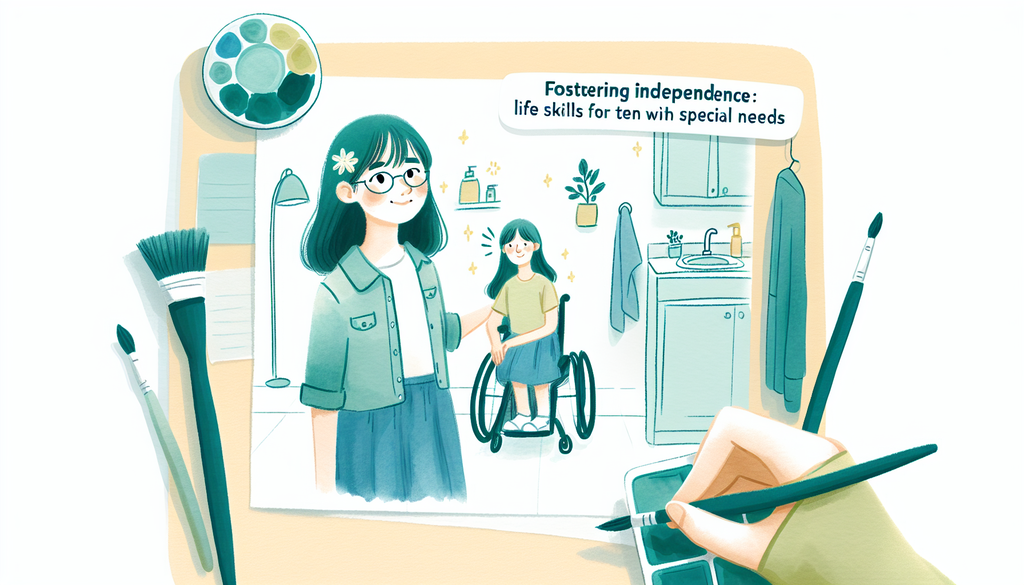Fostering Independence: Life Skills for Teens with Special Needs

For teenagers with special needs, gaining personal independence is a momentous milestone and a crucial step towards adulthood. This goal isn’t out of reach. By focusing on cultivating certain key life skills, you can equip your teen with the abilities needed to enjoy flourishing and autonomy.
Prepare Your Teen for Independence
Your teen’s pathway toward independence may look different compared to their peers, but that won’t make it any less meaningful. Integrating life skills into special education curriculum and even teaching at home can transform the learning experience to accommodate their needs.
Creating and implementing a personalized learning plan specifically targeted at crafting effective learning objectives for special needs students is an excellent place to start.
Critical Life Skills for Independence
Here is a list of critical life skills that can be beneficial for your teenager as they make the transition into independent living:
-
Household tasks: Cleaning, cooking, and doing laundry are some of the practical life skills training suitable for students with cognitive delays. Using a step-by-step approach can help simplify these tasks and provide a rewarding sense of accomplishment.
-
Money management: Understanding basic financial concepts like banking, budgeting, and shopping can be empowering. Using hands-on activities or games are handy to teach these skills.
-
Personal care and health: Regular personal hygiene habits, understanding health needs, scheduling and attending doctor’s appointments are vital components of self-care.
-
Communication skills: Be it through speech, sign language, visual aids, or augmentative and alternative communication (AAC) devices, it’s important to encourage effective communication with others. This can involve practicing communicating with non-verbal children, making it easier for them to express their needs.
-
Travel skills: Public transportation, navigation, and understanding safe travel routes can be part of your teen’s transition plans. Neural tools like Google Maps can be a lifesaver in teaching travel skills.
Hands-On Learning Through Activities
Paving a successful and independent life for a teen with special needs may also sometimes involve learning beyond academics. Activities that cater to creativity, emotions, and resilience can also help.
Music-based activities, for instance, are an excellent way of harmonizing development for special needs children. On the other hand, play-based therapies can also aid in emotional growth.
Your child’s comprehensive growth plan should also include components that foster resilience and build confidence for a balanced development.
The Journey is Rewarding for Both, You and Them
Teaching teens with special needs to be independent may be challenging, but it is a rewarding journey. Keep in mind that every teen is different. What works for one may not work for another. Being a parent, you will have the invaluable opportunity to discover the best ways to help your teen. Last but not least remember to take care of your own self, so you can better support your child.